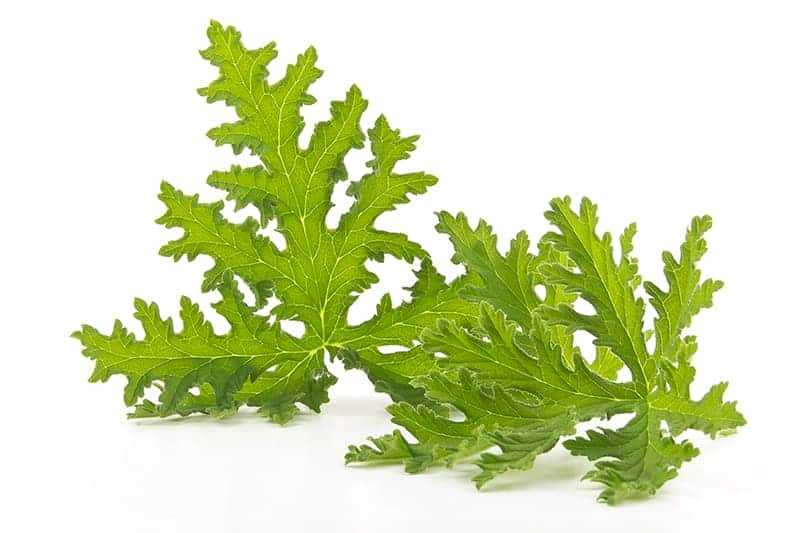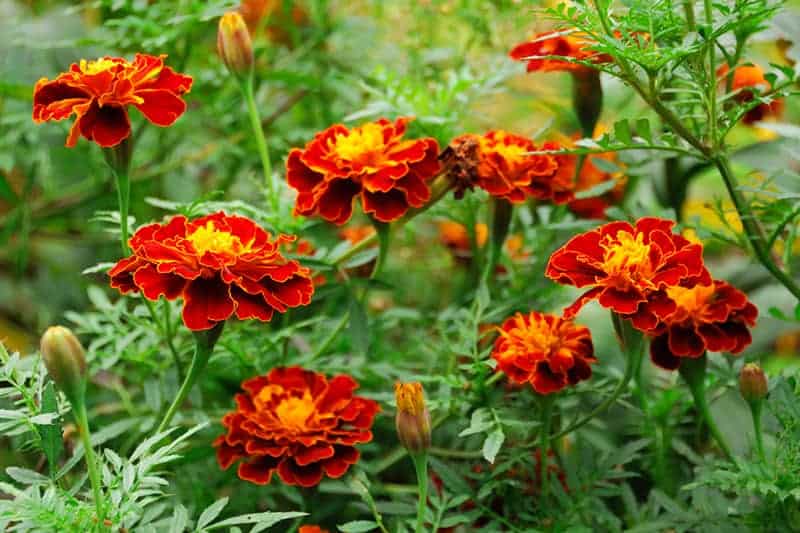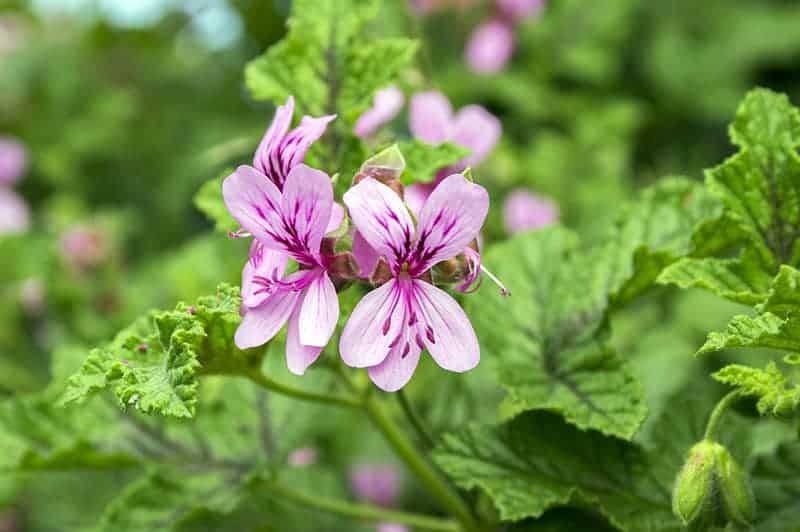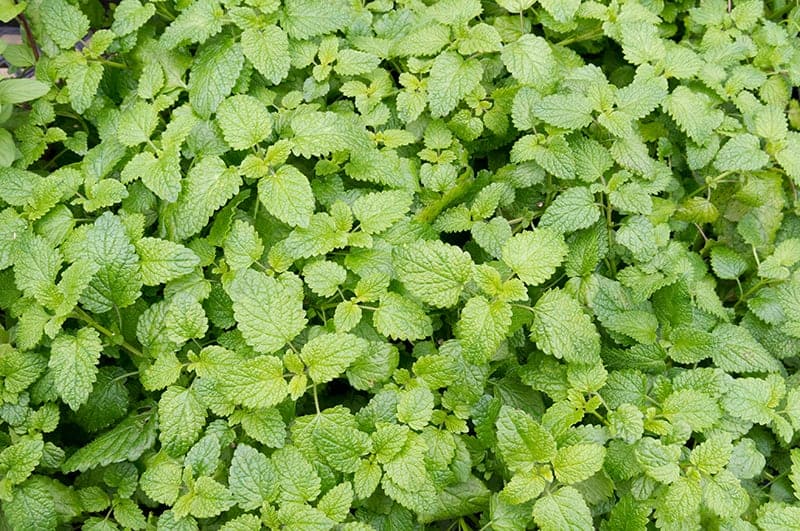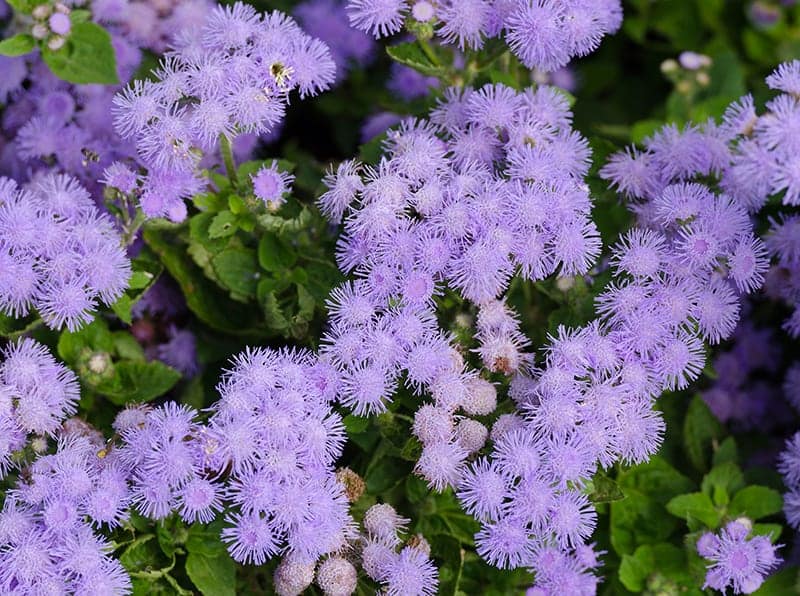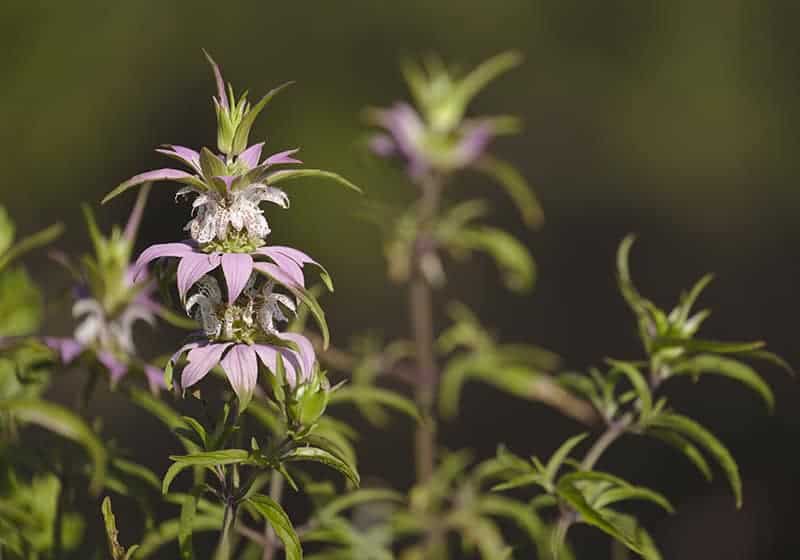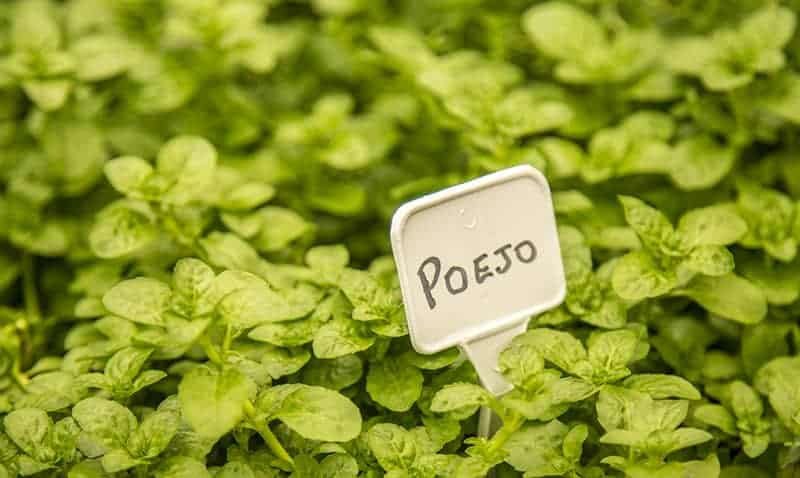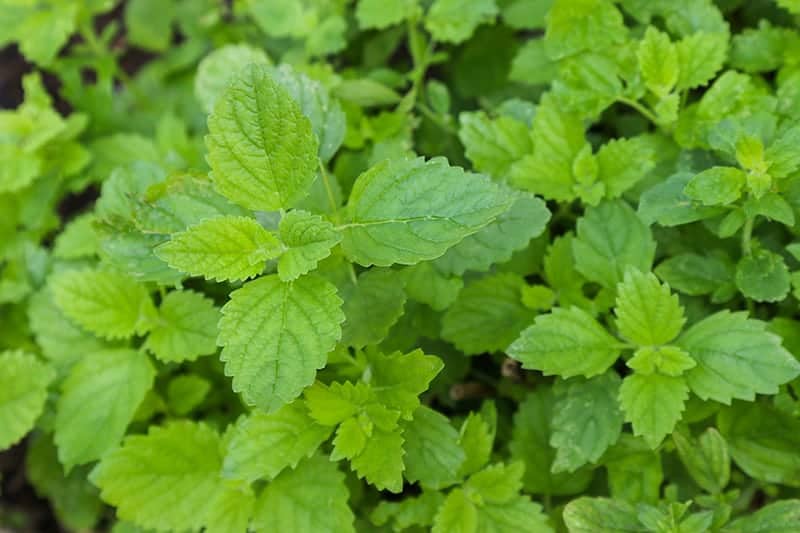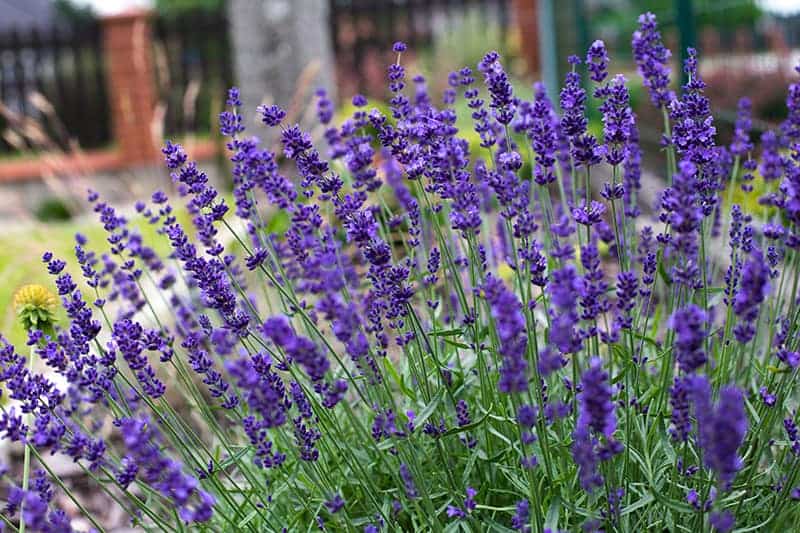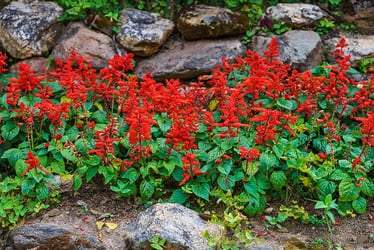Have you ever dreamt of owning your own slice of private paradise? With a ... Read More
- Home >
- Top 13 Plants That Repel Mosquitoes
Top 13 Plants That Repel Mosquitoes
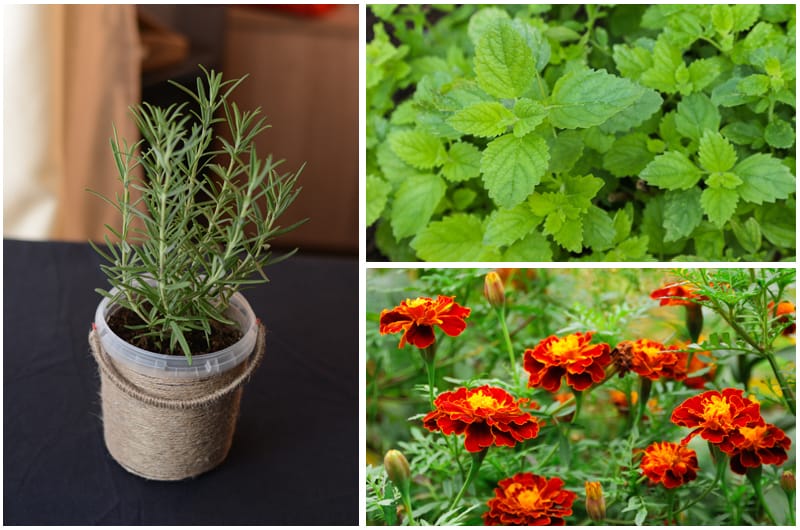
Mosquitoes are a serious nuisance if you want to spend any time outdoors during the warmer months. But the itchy bites they plant on your skin are more than just an unsightly frustration. When mosquitoes puncture our skin to feast on blood, they can infect us with diseases that they carry from person to person, such as malaria and yellow fever.
Some people have allergic reactions to mosquito bites, while others can experience a bacterial infection if the wound does not heal properly. This commonly happens when the bite is so itchy that the person scratches it and damages the swollen skin, opening it up to infection.
While there are many chemical formulas available which we can spray on our skin to discourage mosquitoes from biting us, these are harmful to the environment and also come with their own health risks. As more people become concerned with the chemicals and toxic substances that mosquito repellent products contain, it’s essential to look for natural alternatives to fulfill the role of repelling the pests.
Growing plants in your garden that naturally discourage the presence of mosquitoes is a great way to do this and make your garden a safer environment for you and your family to inhabit. The way plants can repel mosquitoes is with their scents which most people find appealing, but the mosquitoes are repelled by. To make the most of mosquito repelling plants, place them in areas where people are most likely to spend their time, such as along walkways, around seating spots, or outdoor dining areas.
1. Citronella
Citronella (Cymbopogon nardus)
This plant takes the form of a tall grass that can grow up to 6 feet tall and 4 feet wide. The true Citronella plant is scientifically known as Cymbopogon, but there are other plants which are sold under the name of ‘Citronella plant.’ Unless the plant is clearly a grass, then it is not the true Citronella plant. Other plants using this name do have a similar fragrance to Citronella, but they do not contain the same oil which has mosquito-repelling properties and will, therefore, be ineffective at controlling mosquito populations in your garden.
Native to tropical regions of Asia, Citronella grass is a perennial in warmer climates, though it can be grown as an annual in cooler areas. It is a thirsty plant so will need plenty of watering and consistently moist soil, as well as plenty of bright but indirect light. The blades of grass can be burnt under full sun, so ensure the light is filtered during the afternoon high heat. Citronella can be propagated by division, which can be achieved by gently separating the roots into smaller bundles and repotting them in the spring.
It is worth noting that while the oil from this plant does work as a mosquito repellent, the plant itself does not ward off mosquitoes. Planting it near a sitting area in your garden will make no difference to mosquitoes. In order to release the Citronella oil, you will need to crush the blades of grass and wipe them in your skin or clothing. The scent works to mask the smells emitted by humans that mosquitoes are attracted to: carbon dioxide and lactic acid. The smell of Citronella hides these other scents which mosquitoes associate with their food and will prevent some mosquitoes from finding you.
2. Lavender
Lavender is a popular garden plant thanks to its pretty purple flowers, it’s winter hardiness, and the attractive scent it emits. But did you know you can also use this plant to repel mosquitoes? Lavender can be successfully used as a mosquito repellent in two ways.
First, planting a strongly scented lavender in your garden, such as English Lavender (Lavandula angustifolia), will confuse mosquitoes and make it harder for them to find you. They seek out their food source (your blood!) by sniffing out lactic acid and carbon dioxide, gases that are not scented to us but are highly scented to mosquitoes. The presence of lavender in the garden will give out a strong smell to mask the scents you naturally give out, making it harder for mosquitoes to hunt you down.
The second way you can utilize your lavender plant to repel mosquitoes is with its oil. Lavender plants produce an essential oil, around a quarter of which is made up of Linalool. Linalool is an alcohol that inhibits mosquito receptors in the same way that DEET does. In fact, Linalool is one of the ingredients used in many commercial insect repellents. To benefit from this mosquito repelling property of your Lavender plant, crush both the leaves and flowers onto your clothes or skin.
Grow Lavender in sunny spots in well-draining soil. This easy-care plant thrives with little attention, though it will need annually pruning to maintain a neat look.
3. Basil
Basil
This herb works well to keep mosquitoes at bay. The pungent scent given off by all types of Basil will help to keep your skin bite-free. You can plant Basil in containers or directly into the ground, so long as they have well-draining soil which is kept continually moist. Basil grows quickly and easily and will need pruning to keep at a manageable size. Don’t let pruned stalks go to waste, and use them in cooking recipes or freeze them in ice cubes to add a refreshing flavor to cold drinking water.
Another good use of Basil as a mosquito repellent is to grow the herb in window boxes. The scent should work to prevent mosquitoes from flying in to open windows, helping to keep your home bug free.
4. Rosemary
Rosemary (Rosmarinus officinalis)
This woody scented herb is popular in cooking but can also be utilized as a mosquito repellent. Grow it in container pots which can be positioned around seating areas or even on top of outdoor dining tables as a centerpiece to discourage mosquitoes from attacking.
Rosemary prefers hot and dry climates and will need to be brought inside over winter if your temperatures in your region drop to freezing. Rosemary is an evergreen perennial, but it will not tolerate frost. It works well in rock gardens or herb containers, but it can grow to be quite large. It’s not unusual for Rosemary to spread to widths of 4 feet, as well as 4 feet in height, so it will need room to grow. You can prune back Rosemary to prevent it from getting leggy and also to maintain a neat look. Up to a third of the whole plant can be pruned at one time, but you will need to let the plant replace its growth before pruning it again (The Old Farmers Almanac).
Harvest your cut stems for use in stews or casseroles, or rub the Rosemary sprigs on your skin and clothing to enhance their mosquito repelling properties.
5. Marigolds
Marigolds are hardy annual plants that are grown for their striking flowers, typically in borders, but they do have more functional uses, including deterring mosquitoes. Marigolds emit a strong scent that mosquitoes do not like (and many humans are not particularly fond of, either!) The plants contain pyrethrum, which is an ingredient used in many bug repellent formulas that can be bought commercially.
The plants are best placed in borders alongside walkways or near patio areas. When planted in containers, they can be set next to doorways or on a windowsill to discourage mosquitoes from entering your home. However, it is best not to position the plants too close to any eating or sitting areas, as the colorful flowers do tend to attract wasps. As an added bonus, plant Marigolds among your tomato plants, as they deter not only mosquitoes but also pests that prey on tomatoes.
Marigolds grow from seed, but considering how inexpensive and readily available the plants are, it usually makes the most sense to buy them as starter plants. Plant them in containers or directly into nutrient-rich soil in your garden borders. Marigolds prefer to be in a position of full sun, so ensure they have access to plenty of natural sunlight.
6. Rose Geraniums
Rose Geraniums (Pelargonium)
This sweet-scented geranium, scientifically known as Pelargonium graveolens, as an uncommon evergreen shrub. It is native to the Cape province of South Africa, and though it may be a challenge to source one of these plants, it might be worth it if you are particularly struggling the mosquitos. The oil found in this plant, geranium oil, has been found in some studies to be more effective at repelling mosquitoes than both Citronella oil and Linalool.
This frost-tender plant likes warmer climates, where it’s foliage will remain all year round. Pretty pink flowers bloom throughout the summer, making this plant not only functional against mosquitoes, but also a striking sight in your garden. Grow the Rose Geranium in well-draining sandy soil, and allow access to plenty of direct sunlight. In order to utilize this plant against mosquitoes, crush parts of it and rub onto skin and clothing.
7. Catnip
Catnip (Nepeta cataria)
This plant, which grows wild in many areas of the US, has been found to be a very successful mosquito deterrent. Catnip (Nepeta cataria) contains an essential oil called nepetalactone, which studies conducted by Iowa State University found to be ten times more effective at repelling mosquitoes than DEET, the main ingredient in most commercially available insect repellents. Chris Peterson, an entomologist at Iowa State University who led the study, explained that it is not understood what it is about nepetalactone that repels mosquitoes. He said, “It might simply be acting as an irritant, or they don’t like the smell” (Science Daily). Either way, if you’re keen to lower the mosquito population of your back yard, growing Catnip would be a good plant to try.
It is a perennial herb in the mint family and grows very easily. It produces showy flowers in shades of white, pink, and purple throughout much of the year, from spring to fall. Although this plant repels mosquitoes, it has the opposite effect on butterflies and cats, who find the smell very attractive.
As well as planting Catnip in your garden to discourage the presence of mosquitoes, you can also rub it on your skin and clothes to enhance its mosquito repellent properties. However, in doing this, you may find that butterflies and any local cats want to be your new best friend.
8. Ageratum
Ageratum (Flossflowers)
This plant, also commonly known as Flossflowers, emits coumarin, which is a mosquito-repelling ingredient typically found in insect repellant sprays. Ageratum is native to Mexico and thrives in warm climates. It is commonly grown as an ornamental plant due to its beautiful blue blooms. which have a soft and fluffy quality.
Ageratums are easy to grow, though they will need a position of full sun in order to produce a large bounty of flowers. Watering the plant with warm water will also aid in flower production, with blooms generally making an appearance in early spring.
Plant Ageratums close to commonly used areas in your garden, where their scent will help to deter mosquitoes. Unlike many other mosquito repelling plants, this plant should not be rubbed onto the skin as it can cause irritation.
9. Horsemint
Horsemint (Monarda punctata)
This hardy perennial deters mosquitoes with its strong scent. which confuses the pests. Similar to Citronella, the fragrance of Horsemint disguises the smell of carbon dioxide and lactic acid, which are emitted by humans and attractive to mosquitoes. By hiding the smell mosquitoes are looking for, Horsemint makes finding a human host much more troublesome for a mosquito, therefore cutting down the likelihood or frequency of you getting bitten.
This plant is ideal for gardens that don’t have the full sun and well-draining fertile soil that many plants prefer. Horsemint grows happily in dry sandy soil and is drought tolerant. It adapts well to shaded positions and is often found in coastal areas as it is tolerant of salt. It grows quickly with a maximum spread of 3 feet tall and 3 feet wide. If you wish to reduce the size of your Horsemint, you can divide it into smaller plants in spring or fall. Gently separate the root ball and replant the new individual plants in containers or directly in the ground.
10. Pennyroyal
Pennyroyal (Mentha pulegium)
Pennyroyal is the smallest member of the mint family, and it is so potent to the point of being toxic. Because of its high potency, it is one of the most effective natural remedies to repel mosquitoes. To use this plant to rid your garden of mosquitoes, simply plant a few around high traffic areas of your outdoor space, and for a few around your seating area. To maximize the mosquito repelling benefits, crush some of the leaves, and put them in your pockets. The scent will emanate around you and is an especially good idea if you are going hiking or camping. You could also fill a sock or other fabric pouch with Pennyroyal leaves and hang out outside the door of your tent when camping to prevent pests from entering your space.
Pennyroyal is a very effective and safe plant when used correctly. However, it should be recommended with a word of caution. Pennyroyal is so potent that some incidences of fatalities have been reported of both pets and people after ingesting small amounts of Pennyroyal oil, as well as absorbing it through the skin. Pennyroyal oil was historically used to abort unwanted pregnancies, though often resulted in the death of the mother as well. In the past, it has been used as a treatment to prevent ticks and fleas on pets, but this is no longer the case as it became known that Pennyroyal oil and Pennyroyal dried leaves can cause miscarriages in both pets and humans.
If you want to use the Pennyroyal plant in your garden to discourage mosquitoes from hanging around, then simply grow the plant and nothing more. Do not rub it on the skin or ingest it, and certainly keep it away from anyone who is pregnant or potentially pregnant as a precautionary measure.
11. Lemon Balm
Lemon Balm (Melissa officinalis)
This plant contains Citronellal, which works similarly to Citronella, using a pungent scent to confuse and repel mosquitoes. It is a perennial herb that grows easily, though it does have a tendency to become invasive in some areas, so it should ideally be grown in a container to prevent its roots from spreading too far. It can quickly take over herb gardens and nearby plants, so if you do choose to plant it directly in the ground, then do so with caution.
Lemon Balm can grow in a variety of conditions, and the amount it needs watering will depend on this. Lemon Balm grown in full sun in hot climates will need watering much more frequently than Lemon Balm grown in the shade or cooler temperatures. Lemon Balm grown in containers will need watering most frequently, perhaps every day in summer, as the roots cannot search out extra moisture and are wholly dependent on the moisture within the container’s soil.
To ensure your Lemon Balm gets enough water but isn’t overwatered to the point of risking root rot, water the plant thoroughly and then allow the top few inches of soil to dry out before you water it again. If the leaves become wilted you have left it without water for too long, but it will easily recover from this, and you can perk it back up with a good watering.
12. Garlic
Garlic
Growing Garlic bulbs has so many benefits, but it is a vegetable which is often overlooked by home vegetable growers. Garlic grows by simply placing one clove broken off of a Garlic bulb directly in the ground. With the blunt end facing down and the pointing end facing up, Garlic will grow easily provided it is in well-draining soil and has an adequate water supply. Growing Garlic takes up hardly any space in the garden, and one clove will multiply into a whole bulb with many cloves, giving you a constant supply of Garlic for use in cooking.
The smell of the Garlic plant growing will also serve to repel mosquitoes, as they find the scent unpleasant. Plant it in raised beds near to common areas of your garden, as this will serve to keep mosquitoes at bay and will provide a good draining position for the bulbs. An added bonus is that if you eat plenty of the Garlic you have grown, you will find fewer mosquitoes attracted to you. Adding extra Garlic to a person’s diet has been recommended for many years as a mosquito deterrent. It is said that the mosquitoes won’t like the taste or smell of you, although if you are emanating a Garlic smell, you might find that mosquitoes aren’t the only ones who avoid you!
13. Sage
Sage
Sage is a perennial herb with a strong scent that most humans find pleasant, but mosquitoes are repelled by. There are a few ways to use Sage to repel mosquitoes, so start by growing your own Sage plants so that you will have a continual supply in your garden to use. Mosquitos will be deterred by the smell of the growing Sage, but this will only really benefit you if you plant it close to areas in the garden where people sit.
You could plant Sage in a container and set it on an outdoor table to discourage mosquitoes from making a nuisance of themselves. Alternatively, you can crush fresh or dried Sage and rub it onto your skin and clothes. When crushed, this herb releases an essential oil that will help to keep mosquitoes at bay.
Another way to utilize your Sage is to harvest both the stems and leaves. After cutting a selection from the plant, tie the bundle up with string and hang it for a few days to allow the Sage to dry out. You can then burn this outside as incense, and the fragrant smoke will keep away mosquitoes. You could also add the dried Sage to charcoal when you are grilling for the same effect (Good Housekeeping).
Related Content
-
25 Fabulous Small Backyard Ideas
-
A Guide to Winter Plant Protection
One of the most disappointing things as a gardener is to spend all spring ... Read More
-
Calcium Nitrate Fertilizer – How to Use It on Your Plants
Even gardeners with the greenest thumbs need a little help sometimes. Calc... Read More
-
Best Ant Killers: Top 10 Ant-Killing Products
Ants are everywhere, and once you have an infestation, you’ll be hard pres... Read More
